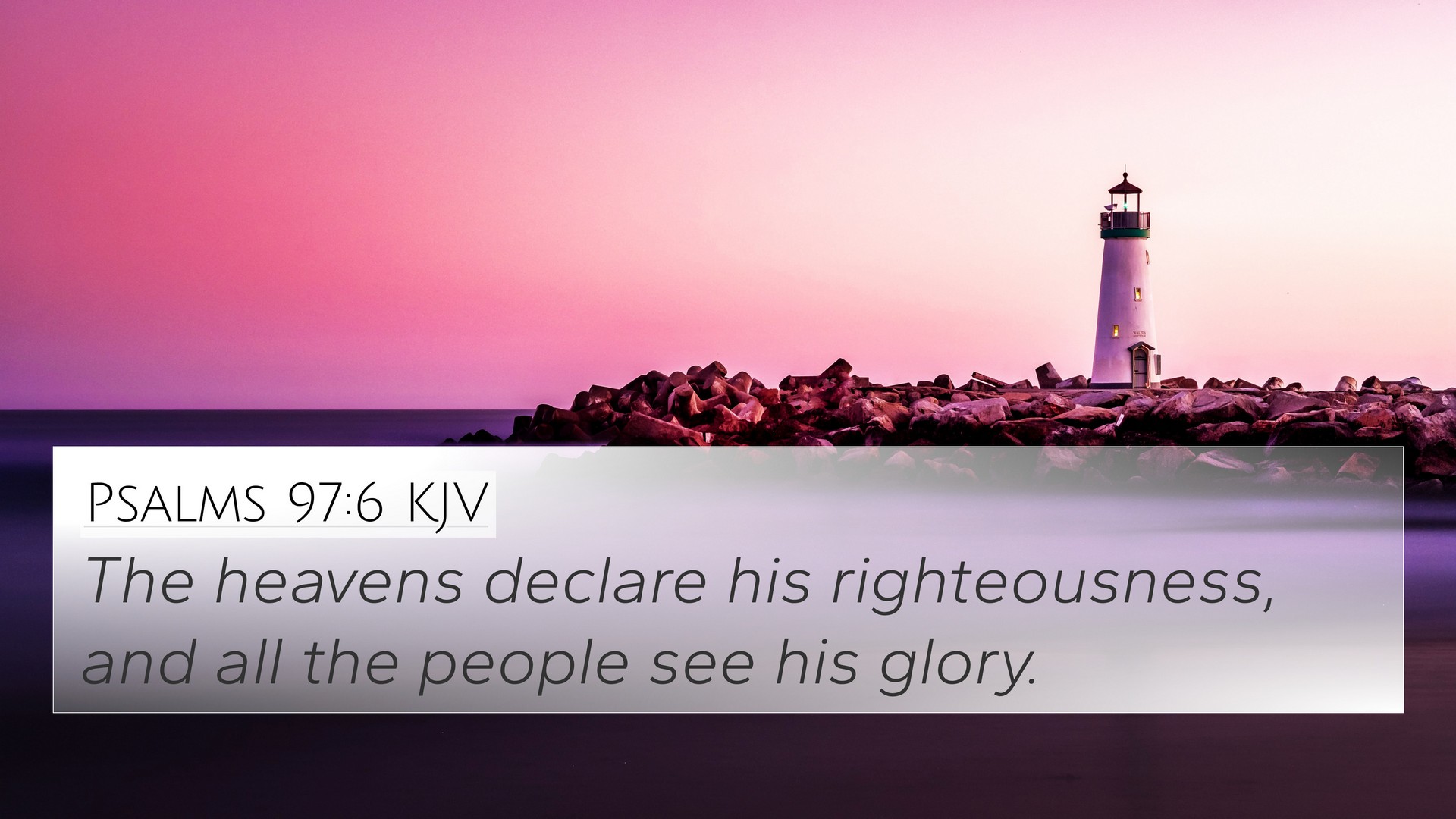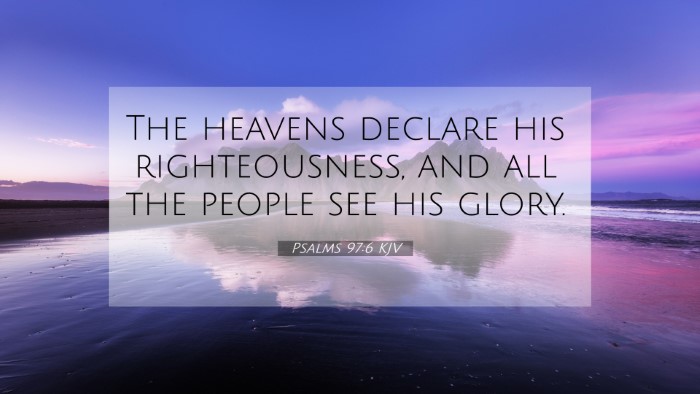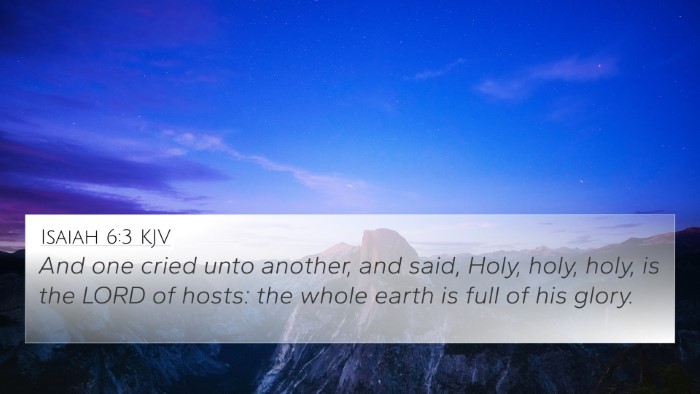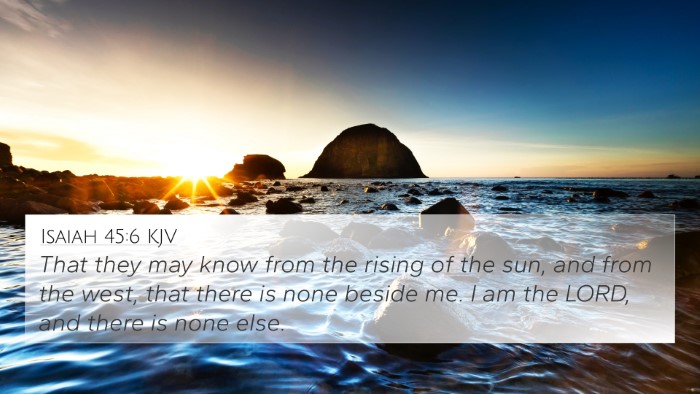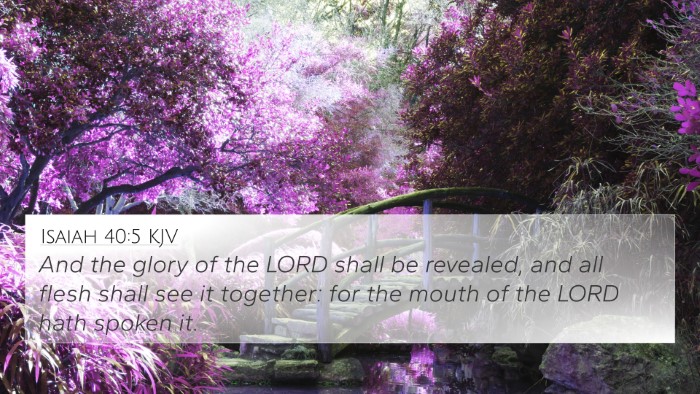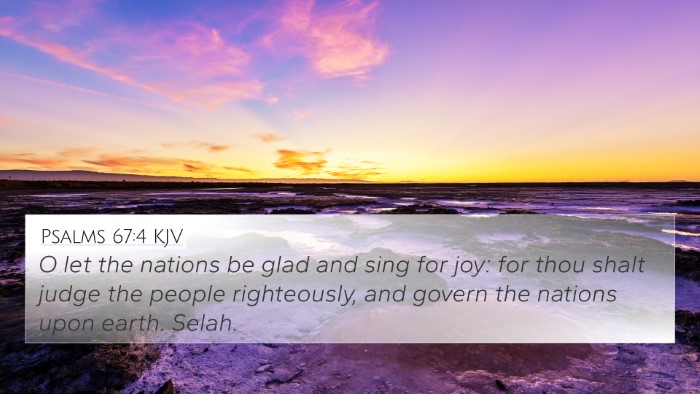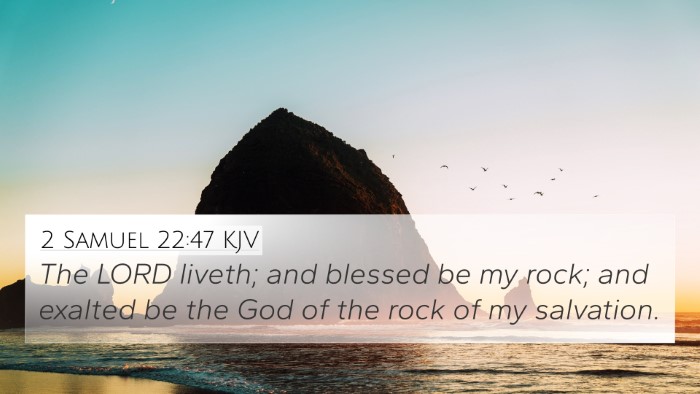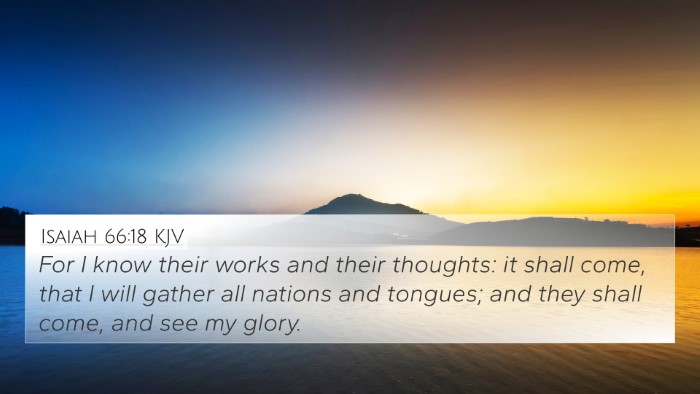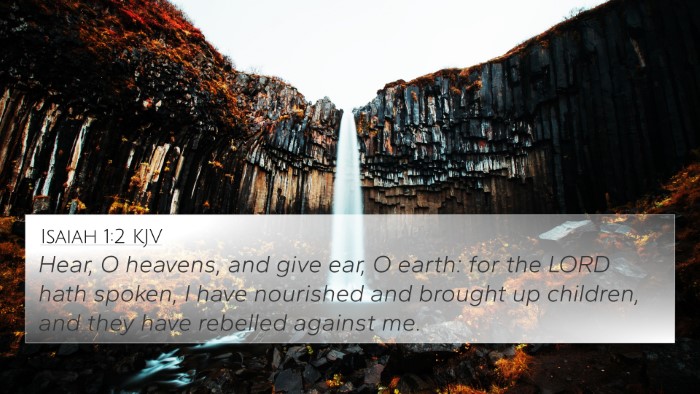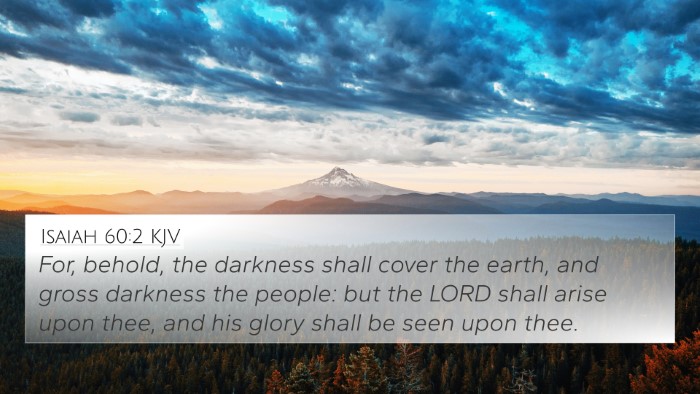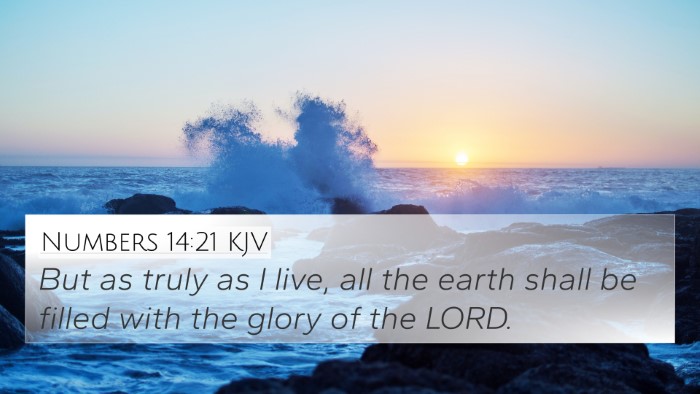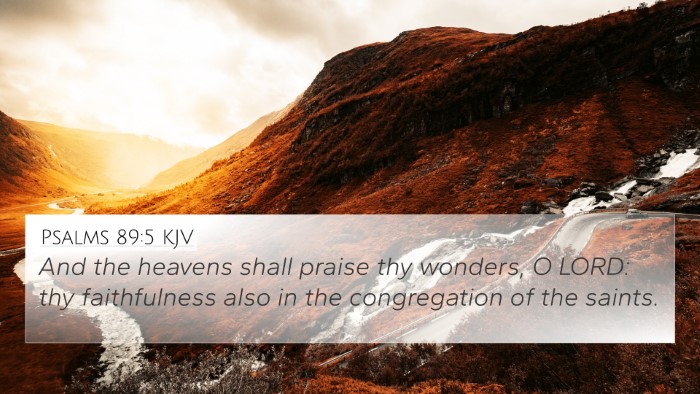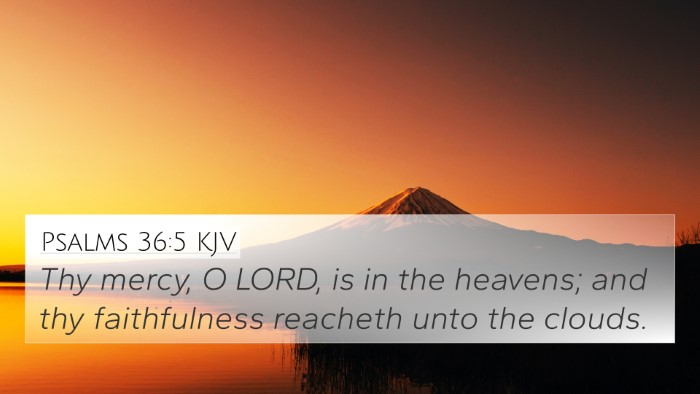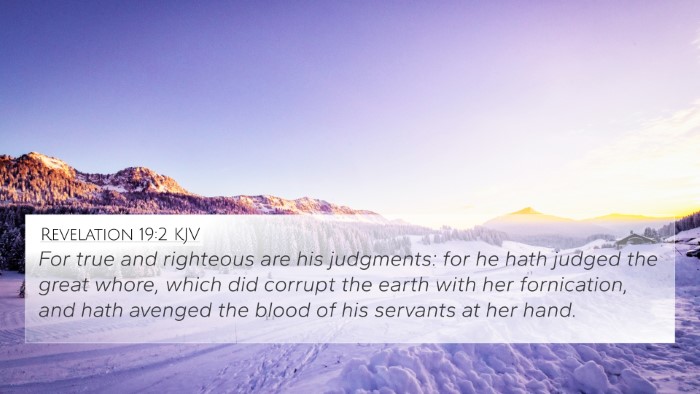Psalms 97:6 - Understanding the Divine Revelation
Bible Verse: "The heavens declare His righteousness, and all the peoples see His glory." (Psalms 97:6)
Summary of Psalm 97:6
Psalms 97:6 expresses a profound truth about God's glory and righteousness evident in creation. This verse highlights that the universe itself witnesses and testifies to the majesty and purity of God. It embodies a call for all humanity to acknowledge and recognize God's supreme authority.
Commentary Insights
-
Matthew Henry:
Henry emphasizes that the heavens are not just physical entities, but they testify to God's righteousness. He suggests that the majesty of the heavens serves as a proclamation of God's character, urging people to recognize and respond to His glory.
-
Albert Barnes:
Barnes notes that the phrase 'the heavens declare' implies a natural revelation of God’s attributes. He argues that through the magnificence of the sky, people can perceive God's justice and moral perfection. This celestial declaration invites a response from mankind, calling them to glory in the presence of their Creator.
-
Adam Clarke:
Clarke delves into the responsibility of humanity in light of divine revelation. He interprets the visible testimony of the heavens as a clear indication of God's power and righteousness. Clarke suggests that this verse serves as both encouragement to believers and a reminder of accountability to those who do not recognize God's sovereignty.
Cross References
Psalms 97:6 connects deeply with several other biblical texts that reflect similar themes of God's righteousness and glory:
- Romans 1:20: "For since the creation of the world, His invisible attributes are clearly seen, being understood by the things that are made."
- Psalm 19:1: "The heavens declare the glory of God; and the firmament shows His handiwork."
- Isaiah 40:5: "The glory of the Lord shall be revealed, and all flesh shall see it together."
- Revelation 4:11: "You are worthy, O Lord, to receive glory and honor and power; for You created all things."
- John 1:14: "And the Word became flesh and dwelt among us, and we beheld His glory, the glory as of the only begotten of the Father."
- Luke 2:14: "Glory to God in the highest, and on earth peace, goodwill toward men!"
- Colossians 1:16: "For by Him all things were created that are in heaven and that are on earth, visible and invisible."
- Hebrews 1:3: "Who being the brightness of His glory and the express image of His person."
- Philippians 2:11: "And that every tongue should confess that Jesus Christ is Lord, to the glory of God the Father."
- Psalm 145:11: "They shall speak of the glory of Your kingdom, and talk of Your power."
Thematic Connections
This verse encourages a deeper understanding of connecting various Bible verses through the themes of God's righteousness and the visible manifestation of His glory:
- Thematic Bible verse connections: Many verses in the Bible underscore God's creation as a reflection of His character.
- Bible verse parallels: The linkages between Psalms and the New Testament illustrate a cohesive narrative of God's glory throughout scripture.
- Cross-referenced themes in the Bible: Understanding this verse in tandem with others enriches one’s theological insight into God's nature and our response to it.
Using Bible Cross-References
Cross-referencing biblical texts enhances the understanding of individual verses, promoting a comprehensive study of the scriptures. Here are some effective strategies on how to use Bible cross-references:
- Identify key themes: Look for recurring themes across different books of the Bible, such as righteousness, glory, and creation.
- Utilize a Bible concordance: Employ tools for Bible cross-referencing to explore related scriptures efficiently.
- Engage in comparative Bible verse analysis: Analyze the similarities and differences between verses to discover deeper meanings.
- Apply a cross-reference Bible study method: Create connections between Old and New Testament verses that reveal ongoing biblical dialogues.
Conclusion
Psalms 97:6 invites individuals into a profound engagement with the eternal truths of God's glory and righteousness as revealed through the natural world and Scripture. By employing effective cross-referencing tools and practices, believers can appreciate the beauty of God's word and its interwoven messages, cultivating a deeper understanding of faith.
